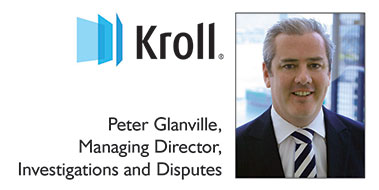The benefits of a contract audit
 Managing contracts for the supply of goods and/or services is an increasing challenge for many businesses today, where potential overcharges, changes in scope, conflicts of interest, delays and variations in quality, among other issues, can all result in financial and/or reputational loss.Although all industries face these contracting challenges, the construction sector is particularly vulnerable given the large value of projects, a reputation for ‘questionable payments’ and other irregularities. Therefore, it is no surprise that 75 percent of companies in the construction industry have expressed that they were affected by fraud1 in 2015.Money can be lost through both ‘soft leakage’, due to duplicate payments and other mistakes such as formula errors in spreadsheets and ‘hard leakage’, due to fraud. The ability to check, monitor and audit financial arrangements during the course of a project, a process known as a contract audit, is essential in reducing the risk of both hard and soft leakage. For example, Kroll was recently retained by a client with a number of ‘greenfield projects’ underway in China. Although numerous resources had been deployed by our client to manage the construction project, ultimately nobody had performed a ‘deep dive’ into the amounts being charged by various contractors. An analysis of the accounts payable ledger, associated supporting documentation and selected vendors revealed areas of potential overcharge in the initial stages of the project. Often areas of potential overcharge (whether by soft or hard leakage) on construction projects relate to the calculation and allocation of ‘overhead costs’; specifically, the components of overhead costs that can and cannot be charged in accordance with the terms of the contract and whether the charging of overhead is duplicated between the contract and any subsequent variations to the contract. In a recent matter, we identified and quantified the duplication of overhead costs in the tens of millions of dollars. The risk of soft and hard leakage occurring in a contract can be mitigated by the appointment of a forensic accountant to deep dive into the costs and reconcile the charges back to the terms of the contract. Having a forensic accountant involved at the contact drafting stage (phase 1) and then through the delivery of the project (phase 2) in monitoring charges as they are presented by the construction company can eliminate major surprises at the point where the contract is completed (phase 3) (i.e. a new building is handed over or the goods are supplied), which can lead to a significantly smoother finalisation process. The assistance provided by a forensic accountant during each of the three phases of the contract lifecycle can help clients understand and mitigate the risk exposures at each stage. Once hard or soft leakage is identified and quantified, the amounts can be recovered through a commercial negotiation process or a more formal dispute forum if necessary. For example, Kroll was engaged to undertake a contract audit of a construction project where we identified that the construction firm was charging a profit margin over and above what they were entitled to charge under the terms of the contract. One method employed to inflate charges was to embed a profit margin into the hourly rate of ‘cost’ for each worker on the construction project. Through forensic accounting analysis, we identified and quantified this amount, which was successfully recovered by the client through arbitration. Given the complexities, the use of a forensic accountant to undertake a contract audit results in the costs charged being dissected, analysed and monitored throughout the lifecycle of the contract. This mitigates the risk of both hard and soft leakage, and provides confidence that amounts charged (and paid) are in line with the terms of the contract. ––––– |
Email: pglanville@kroll.com
Website: www.kroll.com

